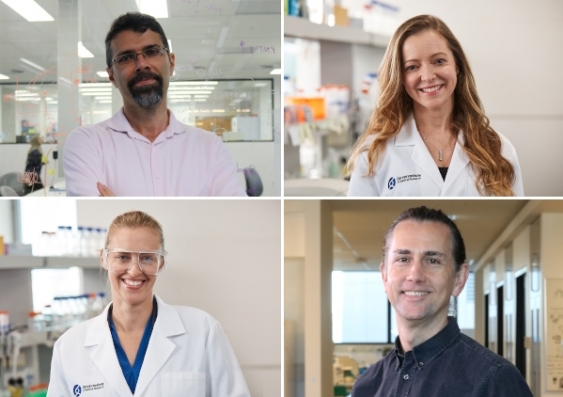Success for UNSW researchers in Cancer Council funding round
Four UNSW Sydney researchers have received funding for pioneering work into pancreatic, breast and bone cancers.
Four UNSW Sydney researchers have received funding for pioneering work into pancreatic, breast and bone cancers.

Yolande Hutchinson
UNSW Sydney External Engagement
0420 845 023
y.hutchinson@unsw.edu.au
The research projects are among 14 ground-breaking cancer research studies receiving grants announced today by the Cancer Council NSW. Together, the UNSW researchers were awarded over $1.7 million in funding over three years.
Funds have been awarded to projects deemed through peer review to be of the highest scientific merit; and through consumer review to be of the most value to the community.
UNSW Pro Vice-Chancellor Research Professor Ana Deletic said: “I’d like to congratulate each of our researchers who have received funding for their world-leading cancer research. I look forward to seeing the results of their vital research, which is well positioned to translate into clinical practice.”
The successful projects are:
Dr Omid Faridani, Group Leader at UNSW Medicine and Visiting Group Leader at the Garvan Institute, will use the funding to help develop a diagnostic protocol that can predict how well a patient will respond to chemotherapy.
Most pancreatic cancer patients are diagnosed very late with advanced tumours that cannot be surgically removed. Therefore, chemotherapy with a handful of drug choices is the only option. It is often difficult to predict which chemotherapy drug works the best for each patient.
“If successful, we aim to test the protocol in a larger number of patients and eventually to provide a guideline for oncologists. This innovative research could significantly reduce time spent on ineffective treatments and improve the survival outcomes of those affected by pancreatic cancer,” Dr Faridani said.
Dr Michelle McDonald, from the Garvan Institute and conjoint lecturer at UNSW Medicine, will use her funding to investigate dormant cancer cells in bones. Dormant cancer cells that have spread to the bone and stopped dividing can reactivate years after cancer therapy and are a significant cause of cancer relapse in patients.
Using an advanced imaging technique, Dr McDonald and her team have revealed that high levels of bone resorption – a maintenance process by which the body breaks down tissues in bone – can reactivate dormant cancer cells and accelerate cancer growth.
Dr McDonald’s team aims to demonstrate that early anti-resorptive therapy can keep tumour cells in a dormant state and prevent relapse in experimental models, a crucial first step to improving outcomes and survival in patients.
Dr Joanna Achinger-Kawecka, from the Garvan Institute and conjoint lecturer at UNSW Medicine, will use her funding to investigate epigenetic therapies for hormone resistant breast cancers.
Dr Achinger-Kawecka and her team propose that three-dimensional epigenetic remodelling – changes to the layer of instructions that organises and regulates DNA’s activity – is an underlying mechanism that determines sensitivity to hormone therapy.
The team will use cutting-edge techniques to establish the links between epigenetics and hormone resistance in breast cancer. They aim to develop new potential therapeutic strategies that more effectively treat patients and reduce cancer relapse.
Associate Professor Alex Swarbrick, from the Garvan Institute and conjoint associate professor at UNSW Medicine, will investigate improved therapies for metastatic breast cancer.
Immunotherapy is a form of cancer treatment designed to activate the immune system to better target tumours. However, it is yet to make a substantial impact on the management of breast cancer, partly because researchers do not fully understand how the immune system responds to metastatic breast cancer cells.
A/Prof. Swarbrick and his team will employ advanced cellular genomics technology to define different cell types and identify therapeutic targets present in metastatic breast cancers. Through these discoveries, the researchers aim to develop more effective immunotherapy strategies that improve outcomes for patients.